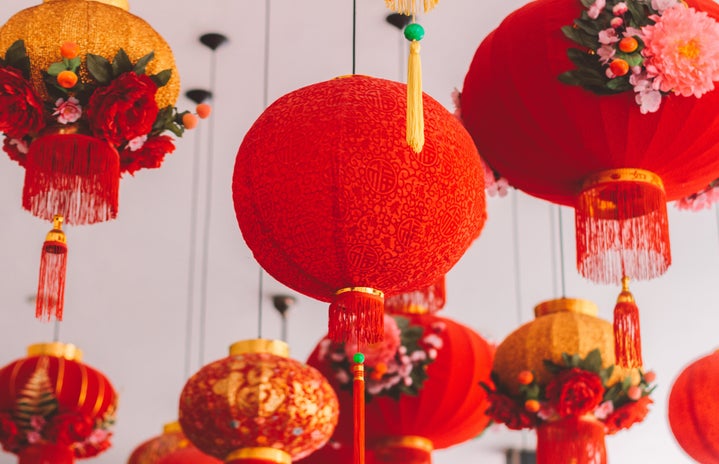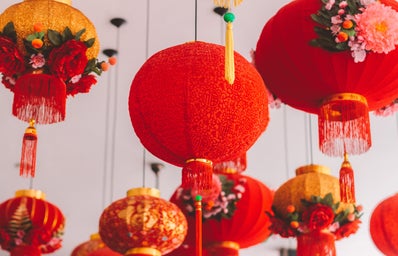When I was growing up, my little brother and I used to fight over the fact that we were Asian. He would always reject the Filipino food and the Chinese food we ordered all the time and favored burgers. I used to eat everything my dad put in front of me. No matter if it was sushi, ox tail stew, or jellyfish, I would eat it. If you grow up in an Asian family, food is a very important aspect of our lives as it shapes our perspective of how important it is that we not take anything for granted. That if there is food on the table, we eat it because if it is wasted, it is wasted time and resources that we aren’t respecting. But I remember countless times where I would scold my brother for not finishing his food or complaining that it wasn’t American food saying, “you’re Asian. We eat Asian food.” And he would reply, “no I’m not Asian. I’m American.” While he’s older now and actually understands being Asian American, I’ve often thought of what it meant to me to be Asian American and how the existence or even lack of balance has affected me. And when I think about it, there were often times I’ve definitely felt the pull of being too Asian…or not Asian enough.
In school, the struggle was definitely the former: being too Asian. I remember in elementary school when kids would pick on me and one other kid because we were the only Asians in class and both Filipino. Since we were both Filipino, we would often be “shipped” before “shipping” was even a term. Middle school and high school were different because my classes were more diverse and kids were actually nicer compared to elementary school. Having that experience of being surrounded by so many different races was a great experience and taught me how important it is to be respectful of every person’s background. I will admit though that there were times I felt embarrassed. My lunches weren’t the same as everyone else. It was leftovers from dinner most of the time. And most of the time dinner was leftover Asian food. Not your classic PB & J or turkey sandwich like everyone else. People would question my food, and I’d have to explain it all. What everyone else found a little weird or unsettling to be eaten I indulged in happily because I was hungry. When it came to food, I didn’t care what it was as long as it was food and food is a huge part of any culture.
But at some point it became a minor problem. One day, one of my friends at school decided to try my lunch. It was kare-kare, a famous Filipino stew that consists of ox tail, eggplant, and bokchoy on top of some rice with the broth consisting of some spices and peanut butter. What I didn’t know was that this kid was actually allergic to peanuts. So he went home from school that day after having an allergic reaction from my food. People joked that I almost killed him, and while they were laughing and joking, I was mortified. It was then that my lunches were mainly turkey and ham sandwiches on white bread with mayo and honey mustard rather than rice and marinated meat or stew. I stopped bringing Asian food in general unless we didn’t have any more sandwich ingredients. That time for me was also when I was addicted to Korean and Japanese culture. So the lunch incident plus the fact that I had nothing but Asian culture to talk about was a big blow to my identity.
So the lunches were boring. I stopped learning Korean and Japanese. I started watching shows and listening to artists everyone else was listening to just so I’d have something to talk about. Yet I still felt disconnected.
It wasn’t until I finally left my hometown and broke out of my shell in the three other places that I lived that I found communities that were also Asian culture enthusiasts. That these people loved to go out and go to karaoke on Sundays or have lumpia making sessions after work or school. I could make soondubu for myself and my friends and bring everyone together for a homemade meal like I had living with my parents. It was when I became more independent that I realized that if people didn’t accept me for my love of Asian culture that those weren’t the right people to have around. Especially during a time like this where xenophobia against Asian Americans is on the rise due to the pandemic, my pride for being Asian American is only stronger. And despite the fear of discrimination against Asian Americans, Asian American families have gone through so much more to be able to identify as both Asian and American.
To think that the people who committed any discriminating acts against Asian Americans have probably ordered Chinese food or Japanese food a couple times in their lifetime is astounding.
So to wrap it up like a lumpia, be nice to one another. Share a meal or two and just be a good person. Accept people for who they are as individuals and don’t make any more divides greater than they already are.


